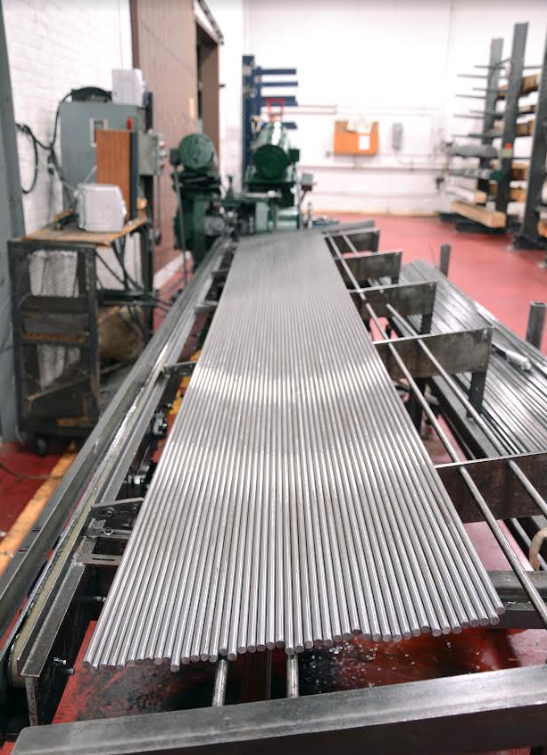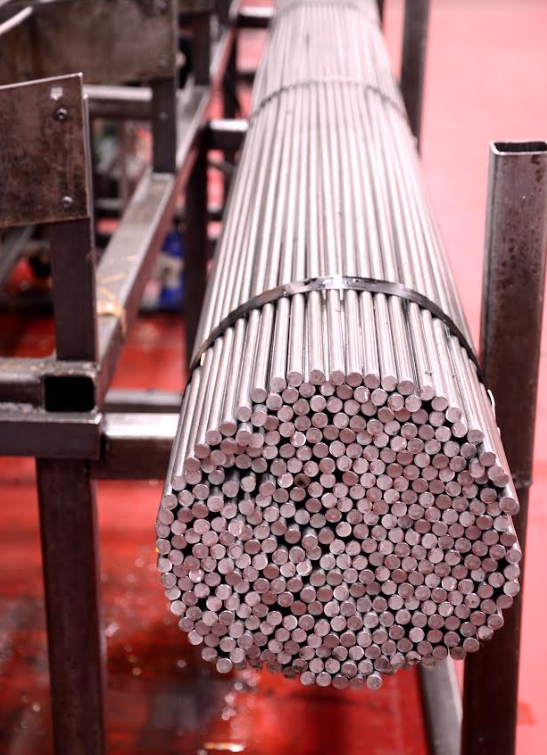The Grade Guide: 300 Series Austenitic Stainless Steel
Main Grades of Stainless Steel
Austenitic, ferritic, martensitic, duplex, and precipitation-hardening are the main types of stainless steel alloys. Their differences are based on their distinct microscopic crystalline structures, each of which lends the steel a specific metallurgical profile.
The most widely used stainless steel is austenitic, with the 300 series being the most popular grade. At Certified Grinding & Machine, 303 Stainless Steel is our most popular grade; our second most popular grade is 416, martensitic stainless steel.
Class 300 Stainless Steel is an austenitic chromium-nickel alloy that is highly corrosion-resistant and non-magnetic, displaying excellent formability and temperature resistance. The most common austenitic stainless steels are types 303, 304, and 316.
Although related, these alloys differ in areas like chemical composition, material capabilities, and cost.
Type 303 Stainless Steel
The base composition of type 303 Stainless Steel is approximately 17% chromium and 8% nickel. 303 Stainless Steel is a free-machining grade of 304 Stainless Steel that contains added sulfur or selenium. The additions of 0.15% sulfur or selenium and phosphorus make type 303 the most machinable alloy of the class but slightly reduce its corrosion resistance.
Despite this, it is still an optimal material for components that require significant machining, such as nuts and bolts, screws, bushings, fasteners, bearings, and components that require significant machining or grinding and require precise tolerances. Type 303 Stainless Steel is a less expensive, more machinable alternative to similarly composed 304 stainless steel.
Type 304 Stainless Steel
The most commonly used austenitic stainless steel (though not at Certified Grinding) is type 304 Stainless Steel. It is composed of 18% chromium and 8% nickel, with low levels of carbon. Highly resistant to oxidation and corrosion, this alloy is durable and easy to fabricate. Considered the most versatile stainless steel of the class, type 304 Stainless Steel has uses in a range of applications where cleanliness and corrosion resistance are required.

Type 316 Stainless Steel
Type 316 Stainless Steel is composed of slightly higher levels of chromium (16-18%) and nickel (10-14%), than types 303 and 304 Stainless Steel. The most distinguishable properties of 316 stainless steel come from the addition of 2-3% molybdenum, an element that significantly improves the alloy’s corrosion resistance.
Type 316 Stainless Steel also exhibits improved heat tolerance, resistance to creep and pitting, and excellent tensile strength. Known for its ability to withstand the effects of exposure to chlorides, the alloy is used extensively in chemical, medical, pharmaceutical, marine, and food applications.
Type 316 has lower formability than 303 or 304 Stainless Steel, but its higher resistances make it more expensive to source. In applications that require welding, the customer should order a dual-certified 316/316L Stainless Steel that is produced by Swiss Steel and stocked at Certified Grinding & Machine. We maintain a spreadsheet to evaluate the weldability of specific melts of 316 bar stock to help you make the best choice for your specific needs.
Have questions about which stainless steel grade is right for you? Contact us today.
Find out what standard and exotic materials we routinely grind.
Need heat treating? Delivery? Inventory? See how else we can help.

